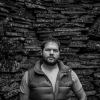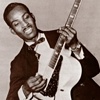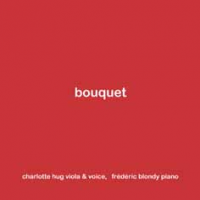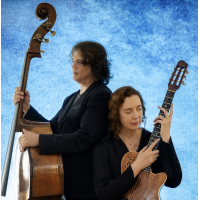Home » Jazz Articles » Interview » Ramsey Lewis: Life is Good
Ramsey Lewis: Life is Good

Lewis had major crossover hits with his exuberant interpretations of 1960s popular music like "Wade in the Water," "The 'In' Crowd," and "Hang On Sloopy," and, with the 1974 Earth, Wind & Fire collaboration, Sun Goddess (Columbia), topped three charts simultaneously (no. 1 R&B, no. 1 jazz, and no. 12 pop). In the meantime, he has released over seventy albums (seventeen of which preceded his first hit single), always keeping his elegant and thoughtful acoustic piano at the heart of his music. He is currently touring with a quintet to support his album Ramsey: Taking Another Look (Hidden Beach, 2011), which explores both his acoustic and electric approaches to making music.
Lewis' music is a destination in itself. His music offers the opportunity to connect with something universal, joyful and profoundly human. If the smile that he flashed repeatedly during his performance at the Michael Schimmel Center for the Arts on October 20, 2012 is any indication, Ramsey Lewis has never had difficulty with that.
All About Jazz: How are you?
Ramsey Lewis: Life is good.
AAJ: Most people know you best for The In Crowd and "Wade in the Water," but I didn't realize that you had been recording for almost 10 years before that.
RL: I started recording in the middle '50s. Back in those days it was customary to do two albums a year, and when they put out a Best of and a couple of compilations, by the time I had done The In Crowd, that was my 16th or 17th album.
AAJ: You were popular before that, but The In Crowd was your first gold record and really brought in a wider audience for you...
RL: That's right. [Bassist] Eldee Young, [drummer] Redd Holt and I were fairly happy and comfortable with the way we were progressing. Because each year we sold a few more records and each year we drew a few more people. And we thought, "Ah, we got something pretty good going here." And it was time to do another record and we put a song on there called "The 'In' Crowd," and here we are.
AAJ: You guys go even further back to high school; you were in a band in high school called the Cleffs, correct?
RL: Yeah, well, we were in different high schools. Eldee and Red were in a high school called Crane High School, I went to Wells High School. They're both on the West Side of Chicago. [Pianist] Wallace Burton, the leader, he was in college. Half the group was in high school and half of them were in college. And we played mostly weekends on Friday nights, Saturday nights for dances and whatever. I guess you'd call it a jobbing band.
AAJ: Is that when you began an orientation towards popular music, because you had to connect with people in a social environment?
RL: Well, Wallace Burton liked all kinds of music, not unlike me, and he was four years older than I am. He liked gospel, R&B, jazz; if it was good music he liked it. Consequently, in the dance band we played all kinds of music. But, being a jobbing band, we not only played for dances, we played at nightclubs, bars, social functions, what have you.
AAJ: What strikes me about your music over the long term is that you've had great rhythmic support with Red Holt and Eldee Young, and bassist Cleveland ("Cleve") Eaton and drummer Maurice White. Why do you think you have attracted such funky, rhythmic sidemen?
RL: Eldee and Red, they already had the band, and when their pianist left to go with [singer] Sarah Vaughan, Wallace Burton called me, I was chosen by them. And so I got spoiled playing with a great rhythm section. When it came time for the Cleffs to break up-the Korean War broke the Cleffs up, and later after that, Red, he was drafted-it became time for me to put together a trio.
I had heard Cleveland Eaton play bass and I knew he was dynamite, and I had heard Maurice White playing drums at our... not my recording studio... but the Chess Family owned a company called Chess Producing, and they had a house band, a production band, and Maurice White was in that band. I heard him play with jazz artists; he played with [saxophonists] Sonny Stitt, Gene Ammons. He played with blues guys, with Muddy Waters, Howlin' Wolf, and I just liked the fact that he was just so all over the place, but great. He could really play all those genres differently and very, very well. When it came time that I needed a drummer, I asked him if he could come and he said he would, so I ended up with a wonderful trio. And you're right, I've been so fortunate in having really great rhythm sections. And that makes it easier for me.
AAJ: I feel like they've always been a big part of your sound, as a trio, as a unit, the same way that the Three Sounds were a great, unified group.
RL: Yeah, the same thing. [Bassist] Andy Simpkins and the drummer [Bill Dowdy] of the Three Sounds had great rhythm, they were a rhythm section, a wonderful one.
AAJ: Speaking of Chess, all of your albums (except one on Mercury prior moving to Columbia) were on Argo and Cadet, which is part of Chess Records. Did the blues artists and jazz artists mix together, or was it more separated by genre and subsidiary label?
RL: It was fairly separated. When we were down there recording, sometimes the blues guys would come through to take care of some business but very seldom would there be more than one session going on. So if the jazz group was recording, there was mostly jazz musicians coming and going. Every now and then there might be a blues group in one of the other studios. But we never got together and played. That might have been fun.
AAJ: I bet; one of my favorite records of yours is Mother Nature's Son (MCA, 1968) which was produced by Charles Stepney. I was curious if that record was more of a creative collaboration or if it was forced upon you by the label, the same way Howlin' Wolf's electric album was.
RL: It was less of a collaboration than Charles Stepney saying, "Ramsey, have you heard The Beatles album called the The White Album (Apple, 1968)?" I said, "Yeah, I have it." And he said, "You know, there's some really nice song on there, why don't you do an album and use those songs?" Now, I would find it difficult to do a whole album of Beatles songs-before that I had done "A Hard Day's Night" and a song called "And I Love Her"-and I just couldn't conceive of it. He said, "Would you let me do some arrangements and you let me know what you think of them and we'll go from there?" And I said, "Yeah." Well, he did some arrangements and we rehearsed two or three songs and I'm like, "Wow, let's do the album!" So I have to thank Charles Stepney for that. But I have to thank Charles Stepney for a lot of things, he was going to be the [producer] Quincy Jones of his day, had he lived. He died at a very early age. But as you know, he produced me, he produced Minnie Riperton, Howlin' Wolf and others [Rotary Connection, The Dells, Earth Wind and Fire, Muddy Waters, Terry Callier, Eddie Harris, The Emotions, among others].
AAJ: Charles Stepney's work is fascinating and very complex.
RL: Quite a talent.
AAJ: So you enjoyed making that album?
RL: We had a wonderful time in the studio. We were still in those days recording live, meaning we didn't overdub a bunch of stuff. We overdubbed little sound effects here and there but by and large most of that music was recorded with everybody in the studio. And everybody was having a great time, especially me.
AAJ: Was that one of your earlier exposures to electric keyboards? There are a lot of interesting synthesizers on that record...
RL: Yeah. I still had not gotten totally into electric keyboards. And once again it was Charles Stepney who said, in respect to the time and era that we were recording this music in, "Do you mind if I overdub a couple things here and there?"-electric sounds, mainly connecting the songs. You'll notice that one song will end totally, and before the other song starts, there are some sounds. He did a lot of that, in good taste, and it only made the album better.
AAJ: In the '70s, as you were moving from your traditional jazz trio work into electronic and groove-oriented music, what about those new techniques and sounds opened up and changed the music for you?
RL: Well, you know, curiosity. And I think it started with Charles Stepney. Once I saw the possibilities, I started experimenting and it was fun. [Singer/keyboardist] Stevie Wonder wrote a couple things for me for electric piano and synthesizer-"Spring High" and "Love Notes," and other things-and it was just fun experimenting with it.
I always have remained faithful and true to the acoustic piano and I don't claim to be Chick Corea or Herbie Hancock-they go whole-hog off into the electronic world and I've never done that. I love and respect what they do, but I'm so hung up on the acoustic piano, I've never strayed too far away from it.
AAJ: I realize that, as I listen to many of your '70s and '80s recordings, there is acoustic piano at the center of many of those songs.
RL: Exactly.
AAJ: Was there any particular reason why Redd Holt and Eldee Young went off to form their own group? Because it seems like the music they did when they started was similar to the music you were creating together at the time, and it was doing well.
RL: We got to the point where, after being together for 17 years, or however long it was, success had spoiled us. We got that hit record and at first it was, "Wow, here we go," and then it was not more that two or three months after the big hit record that we started having personality clashes and problems. And it ceased to be fun, which is strange to go through the period of... we never had hard times and hard knocks, it was never that, but nothing nearly like the kind of money we were making when we got those hit records, "Hang On Sloopy" and "The 'In' Crowd." So personality clashes took over and if you're not having fun with what you're doing, why do it?
I think it's human nature. While we were a partnership, the same way The Supremes were a partnership and a lot of groups were a partnership, as popularity grows and one or two members become more popular (only because of radio, newspapers, interviews, etc.) and although your partnership and the money is split equally, human nature says, "Why is your name the name?" It just gets crazy. I've noticed that many groups have had that problem. Success has spoiled a lot of great groups.
AAJ: It's a very common story in the music business.
RL: Yep.
AAJ: You've returned to electric music with your album, Ramsey: Taking Another Look, and this tour with a five-piece ensemble. What was the impetus behind the album and the shift back into this mode of music?
RL: I had the trio and was having a wonderful time and my agent called me and said he'd been getting a few phone calls from performing arts centers, buyers, and producers asking if I was ever going to go back to the electric band. I hadn't even though about it. This was the year before last, in October or November, and I said, "I'll give it some thought." We were touring with the trio and then the Christmas holidays came so I wasn't playing. Right after the first of the year, though, Carol, my wife, said "Why don't you have the guys come over?" So we went to a studio with the quintet just to play, just to see how it'd feel and, my God, I had so much fun that I called my agent and I said, "OK, this is it, let's go with the quintet." And the songs that ended up on the album, Taking Another Look, are the songs we were jamming on at the rehearsal session. So only six or eight weeks after that I just booked studio time and said, "Let's just go in and record these songs."
AAJ: When you had a big hit with the song "Sun Goddess," what kind of gigs were you playing at the time? Were you playing big venues?
RL: Just before that time we were playing a combination of nightclubs and performing arts centers. We were playing two or three thousand-seat auditoriums and also fair-sized clubs. And after "Sun Goddess" we were playing mostly concerts.
AAJ: And was that mainly to a jazz crowd, a rock crowd, an R&B crowd, or everybody?
RL: Everybody. I've always drawn everybody.
AAJ: Being commercially successful and engaging a lot of different audiences-through covering familiar music like folk music and pop music-how do you feel about labels such as "pop jazz" or "smooth jazz" or "easy listening?"
RL: I know nothing about labels. I don't care about labels. I only acknowledge a fine piece of material, a nice song, a good melody, nice chord changes, a rhythm section, or something that catches my attention.
The only label to me that had a lot of copycats was "smooth jazz." I remember when [keyboardist] Joe Sample, [singer] Al Jarreau, and guitarist George Benson, myself, and [saxophonist] Grover Washington, Jr. were getting a lot of play on various stations, and some company came along and said, "We're gonna call these stations 'smooth jazz' stations." Before I knew it there were thousands of copycats out there.
AAJ: And most of it was pretty awful...
RL: Most of them were pretty awful. And I think they ruined the name, actually. There's nothing in a name except what it represents, and it no longer represented the higher quality of music that the original guys were doing. They watered it down, they took what we were doing and they watered it down, and many of them just couldn't play.
AAJ: I feel like throughout your entire career there's always been a substance and a unique quality to your music. As a 33-year old, I originally came across your music in my dad's record collection. He had Wade in the Water (Cadet, 1966) and Live at Bohemian Caverns (Verve, 1964), among Bob Dylan, the Ventures and Iron Butterfly albums. I agree with your feelings that its all very much one thing, and the overused Ellington quote of music being "good, or the other kind" is part of your approach.
RL: I totally agree with you.
Selected Discography
Ramsey Lewis, Ramsey: Taking Another Look (Hidden Beach, 2011)Ramsey Lewis, Songs from the Heart: Ramsey Plays Ramsey (Concord, 2009)
Ramsey Lewis, Salongo (Sony, 1976)
Ramsey Lewis, Sun Goddess (Columbia 1974)
Ramsey Lewis, Tobacco Road (Chess, 1972)
Ramsey Lewis, Mother Nature's Son (Universal, 1968)
Ramsey Lewis, Wade in the Water (Cadet, 1966)
Ramsey Lewis, Tribute to Clifford Brown (Argo, 1958)
Tags
Ramsey Lewis
Interview
Jacob Blickenstaff
United States
Illinois
Chicago
Ornette Coleman
Earth, Wind & Fire
Eldee Young
Red Holt
Cleveland Eaton
Sarah Vaughan
Sonny Stitt
Gene Ammons
Muddy Waters
Howlin' Wolf
Andy Simpkins
The Beatles
Quincy Jones
Eddie Harris
Stevie Wonder
Chick Corea
Herbie Hancock
Joe Sample
Al Jarreau
george benson
Grover Washington, Jr.
Bob Dylan
PREVIOUS / NEXT
Support All About Jazz
 All About Jazz has been a pillar of jazz since 1995, championing it as an art form and, more importantly, supporting the musicians who make it. Our enduring commitment has made "AAJ" one of the most culturally important websites of its kind, read by hundreds of thousands of fans, musicians and industry figures every month.
All About Jazz has been a pillar of jazz since 1995, championing it as an art form and, more importantly, supporting the musicians who make it. Our enduring commitment has made "AAJ" one of the most culturally important websites of its kind, read by hundreds of thousands of fans, musicians and industry figures every month.





















